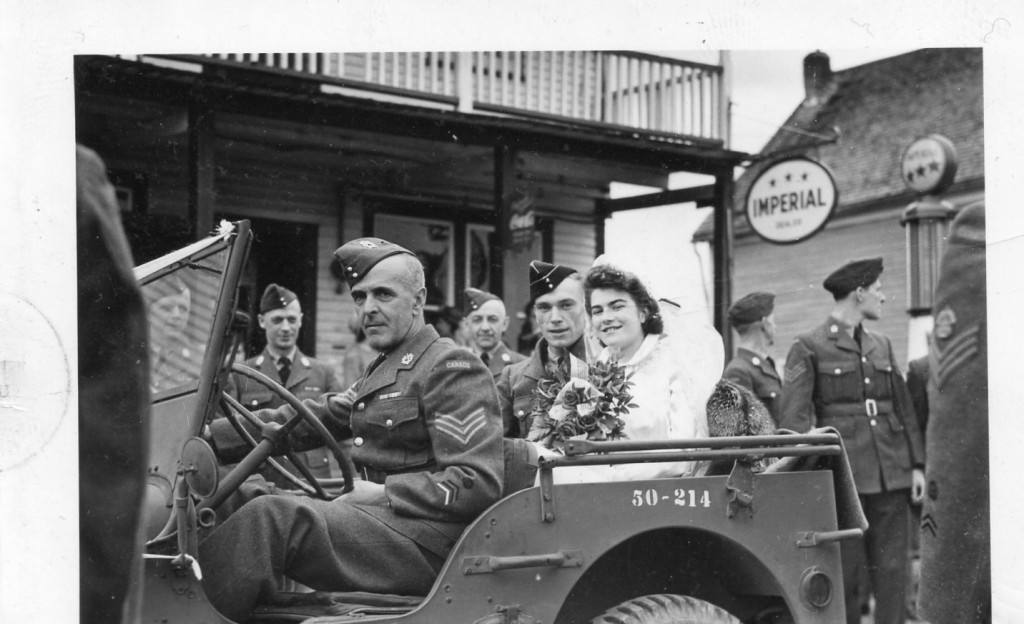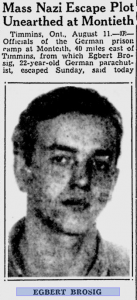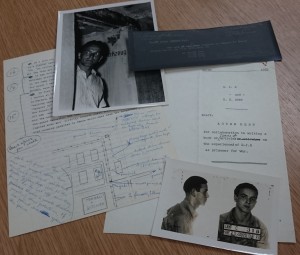One of the exciting aspects of writing blogs using our collections is people getting in touch as a result of what you’ve written. Way back in August 2015 I wrote a post about Egbert Brosig, a German prisoner of war in Canada during the Second World War, and his many attempted escapes. Shortly afterwards I received an email from a lady in Canada who had more information on Brosig, and who had been searching for further information about him for some time.

A view of the Monteith Prison Camp, taken by the father-in-law of our contact
This lady’s father-in-law was a dental assistant in the Monteith camp where Brosig worked in the dental department. As I mentioned last time, Brosig was selected as having some of the best English of the prisoners, and so translated for the dentist when he was treating them. The two men apparently got along quite well, and the family own a small wooden cigarette box carved by Brosig and possibly either given as a gift for helping Brosig improve his English, or sold to help raise money for his many escape attempts. Her father-in-law was deployed overseas around the time that Brosig was moved to the Medicine Hat prison camp.

The front of the cigarette box carved by Brosig, featuring a soldier surrounded by barbed wire and the word ‘Canada’

The back of the cigarette box carved by Brosig with his initials
Her mother-in-law was the daughter of the owner of Monteith Post Office and General Store, and it was either her brother or her father who assisted Brosig onto the mail train hidden in a mail bag, during one of the escape attempts described in the last post. The official story, reported through the family is that it was her father, but it has been recorded through other sources that it was her 14 year old brother. It seems likely the father claimed it was him to prevent his son getting in trouble with the Royal Canadian Mounted Police (RCMP).

The wedding of our contact’s parents-in-law, outside the General Store in Monteith
We were also sent this wonderful photograph of the wedding between the lady’s parents-in-law in 1943, just before he was deployed abroad and Brosig sent to Medicine Hat. This image shows the happy couple outside the Monteith general store.
The woman who emailed us was able to shed light on some other aspects of his life. After the war and his return to Germany, Brosig worked as a translator for the American government for 10 years. As with many young men at the outbreak of World War 2, he had been forced to join the German army with the onset of war, and did not join of his own volition. He lived until the age of 90, dying only a few years ago.
For those of you who missed the first post, give it a read here: http://blogs.kent.ac.uk/specialcollections/2015/08/20/a-tenacious-escapee.
Rachel Dickinson.



